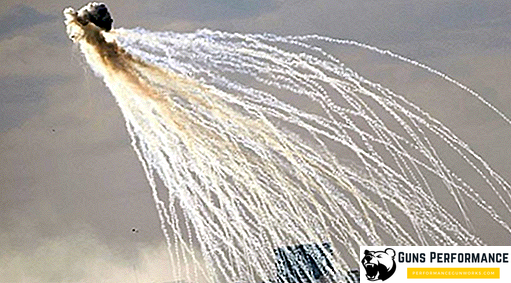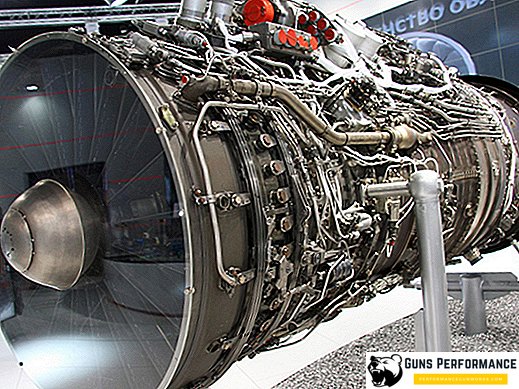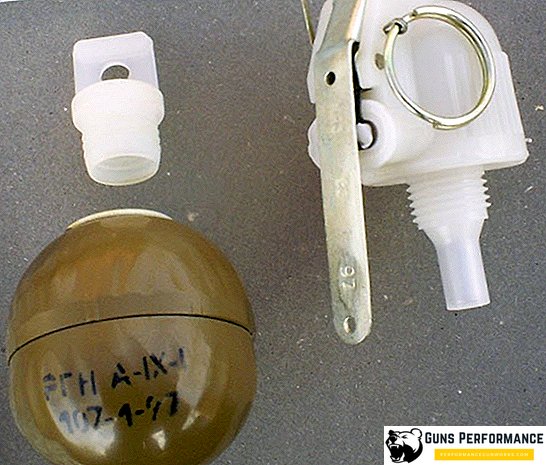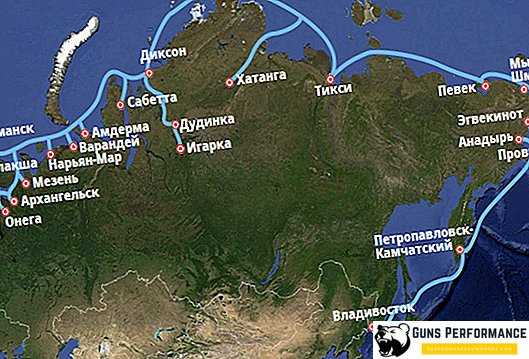
In modern society, the price of human life is getting higher. At least, a similar trend is characteristic of Western countries. Most US and European citizens no longer want to fight. Moreover, the western voter perceives extremely negatively the use of national armed forces in various conflicts, usually occurring many thousands of kilometers from his home.
However, despite this civil pacifism, the world did not become safer and wars did not stop there. Both the United States and European countries have to defend their national interests with the help of armed forces in different parts of the world. The best way to resolve this contradiction is to use mercenaries.
A mercenary is a person who participates in an armed conflict not because of his political, ideological, or national considerations, but is receiving material gain for dangerous military work. Often, mercenaries are not citizens of the country in whose territory an armed conflict takes place, although different options are possible. The mercenary does not take the oath, the political aspects of the conflict are not important to him, he is only interested in money.
Mercenary is, of course, not an invention of modern times. But if earlier soldiers, as a rule, were hired by states or representatives of nobility, today mercenaries are offered by commercial structures. These are private military companies (PMCs).
A similar business appeared around the 60s of the last century, but private military companies have become a mass phenomenon over the past few decades. PMCs offer protection or defense services, and increasingly they are directly involved in hostilities. In recent years, information has appeared in the media about the creation of such structures in Russia.
At present, the global trend is such that private military companies are gradually ousting regular troops from the battlefield.
The history of the emergence and development of PMCs
The practice of attracting various specialists, advisers, and instructors on a contract basis has a long history. However, the first PMC in its usual form was created in 1967 in England. The founder of the company became the colonel of the army of Her Majesty David Sterling. Previously, this outstanding man created the famous British SAS - one of the best special units in the world. The first PMC was called Watchguard International, its main focus was the preparation of various security organizations in the countries of the Middle East and Africa.
In the mid-70s, the private military company Vinnell Corp, owned by the American industrial giant Northrop Grumman, received the first serious contracts from the US government. Their amount exceeded half a billion dollars. Employees of the private security committees were to prepare the National Guard under Saudi Arabia and perform some security tasks on the territory of this country.
Many mercenaries from various PMCs participated in the fighting in Angola. It should be noted that foreign mercenaries are not always used as infantry on the front lines. This could include communications workers, staff officers, techies, operators of complex weapons systems, and many other specialists, without whom no modern army can do.
The number of private military companies grew rapidly, their services were used not only by governments of various countries, but also by large business. This problem is even interested in the UN. In 1979, a special resolution was adopted on this issue and a committee was organized, which, however, was of little use.

The situation has changed dramatically since the end of the Cold War. Defense expenditures were drastically reduced in the United States, many projects were closed, and the number of American armed forces decreased. It was at that moment that the US military leadership had an idea to more actively engage hired companies. At first they were engaged in providing the armed forces (logistics, equipment repair, supply), but then PMCs were called on to perform more serious tasks.
During the invasion of Iraq in 1991, the number of mercenaries from various PMCs was 1% of the total number of American troops in the Persian Gulf. And that was just the beginning.
Private mercenary armies took part in various military conflicts in Africa in the 1990s, the American PMC MPRI trained the Croatian army during the war in Yugoslavia. However, the heyday of private military companies began after the US invasion of Afghanistan and Iraq. Currently, the number of mercenaries stationed in these countries exceeds the number of US military personnel.
Western PMCs trained the Georgian army before 2008, American and French military companies opposed pirates in Somalia, and mercenaries from various PMCs took part in the civil war in Libya.
And this is not a complete list of the conflicts of the last decades in which private hired companies were spotted. Today 450 private military companies are officially registered in the world, the list of their services is very wide.
The most famous western PMCs are: Academi (this is the former Blackwater), Kellog, Brown and Root (USA), Groupe-EHC (France), Erinys (USA), DynCorp (USA).
Why use PMCs
Modern private military companies are engaged to perform a variety of tasks. The most common of these is military consulting. That is, they carry out training of fighters of power units, increase the level of officers and technical staff, conduct strategic planning.
The second activity of PMCs is logistics. "Private traders" are engaged in providing regular troops involved in the fighting. Moreover, the concept of "security" is interpreted very widely. This may be the repair of military equipment, and the usual supply of advanced parts, and maintenance of army computer systems.
Very often PMCs are involved in the protection of various objects. A classic example is the oil fields and pipelines in Iraq. This work has long been engaged in PMCs. In recent years, private military companies have been actively offering de-mining services.
In connection with the development of piracy in some areas of the oceans, for PMCs, a new line of activity has appeared: escorting ships and fighting modern filibusters. This issue is particularly relevant for the Gulf of Aden. It is much more profitable for shipowners to hire PMCs than pay a ransom for a ship. By the way, the issues of ransom and the release of captured sailors are often also dealt with mercenaries.
The trend of recent years is the direct participation of mercenaries in hostilities. Private security contractors, “sharpened” specifically for the war, are created in the USA, Europe, the Middle East and Russia.
Today in Russia more and more voices are being heard about amendments to legislation that would allow the creation and use of private security agreements on legal grounds. In our country, a huge number of people have military experience, and a low level of well-being will make it possible to seriously save on the salaries of Russian "soldiers of fortune." Whether this is needed by the current leadership of the country is an ambiguous question that deserves separate material.

Private military companies in Russia
What is the situation with private hired companies in Russia? We do not officially have mercenaries; moreover, such activity is punishable by law (article 359 of the Criminal Code of the Russian Federation). A person involved in an armed conflict for money can get from three to seven years in a colony in Russia.
Mercenary on a serious scale arose in Russia immediately after the collapse of the USSR. The country was going to reduce the huge armed forces, tens of thousands of excellent military experts were on the sidelines of life, besides many of them had real combat experience. Therefore, it is not surprising that the Russian-speaking military began to appear in various parts of the world. Today, there are several Russian mercenary military organizations that provide various types of fairly specific services.
Such companies are usually staffed by retired military, veterans of special units, often having more than one experience of conflict. The official status of such structures in Russia has not yet been determined; under article 208 of the Criminal Code of the Russian Federation, the organization of illegal armed groups is a crime. Here is a list of the most frequently mentioned PMCs of Russia: E.N.O.T. CORP, PMC Wagner, Cossacks, Tiger Top Rent Security, Moran Security Group, PMC IDA.

These structures are engaged in a variety of activities: provide security services, escort cargoes, train military personnel, fight pirates, and directly participate in hostilities.
In recent years, information about the vigorous activity of domestic PMCs has increasingly become public. Now Russia is involved in two conflicts in which it has to use PMCs especially actively. We are talking about Syria and Ukraine.
In early spring, the journalists of the St. Petersburg "Fontanka" conducted a brilliant investigation, which concerned the activities of Russian private military companies. In their field of view came the PMC Wagner, whose fighters have been participating in hostilities in eastern Ukraine and Syria for a long time.
Formally, this private army does not exist, it is not in the lists of power structures, nor in the registers of legal entities. However, despite this, the PMC Wagner has armored vehicles and heavy infantry weapons. The unit has been involved in the Syrian conflict since 2013, it was involved during the return of the Crimea, and then transferred to the territory of the Luhansk region.
PMC Wagner got its name for the call sign, which is used by its commander, Dmitry Utkin - a former commando and a big fan of the attributes and ideology of the Third Reich. The unit is staffed by former military, special forces, veterans of law enforcement agencies.
For the power of the existence of structures like the PMC Wagner, very convenient. Officially, Russia is not fighting in the Donbas, participation in ground military operations in Syria is also not advertised. Soldiers of PMCs Wagner are not counted anywhere, official structures do not recognize them, which, however, does not interfere with awarding mercenaries with military orders and medals. Most often posthumously.
Naturally, the loss of private military companies do not pass on the lists of the Ministry of Defense. The mercenaries themselves avoid contact with the press and do not want to publicize at all, since everyone "goes under the article."
Journalists unearthed information about dozens of dead Wagnerites, most of whom were killed in the Donbas

A peculiarity of the PMCs of Wagner is a very high percentage of losses, which is usually not typical of private military companies. As a rule, professionals are selected for such structures, and they go very rarely in frontal attacks. However, in the PMCs of Wagner, everything is "a little" different.
Both in the Donbas and in Syria, Wagner men work in the most dangerous points, they often go as part of the first wave of attackers, storming settlements and enemy positions. The management of private security committees practically does not pay attention to the training of servicemen. The fighters complain that for a complete repetition of the Soviet tactics of the Second World War, they lack only “bayonets on AK”.
Despite the high percentage of casualties, there are more than enough people willing to serve under Wagner’s command. The reason for this is very simple - money. In a month a mercenary receives about 240 thousand rubles - very good money for the Russian hinterland.
The current situation of PMCs
The process of growth in the number of private military companies in the world is proceeding rapidly. Their use in conflicts reaches hitherto unprecedented proportions. Americans simply cannot name the exact number of mercenaries that are present in Afghanistan and Iraq.

In 2018 in Afghanistan, for every American soldier of the regular troops (total 9.8 thousand), there were three mercenaries (28.6 thousand). The situation is similar in Iraq: 4,087 servicemen and 7,773 soldiers of private military companies. These figures, most likely, are not final, as the American defense department does not keep accurate records for PMCs.
By the way, the Russian PMC Lukoil-A operates in Iraq. This company is a division of the oil giant, it was created by Vympel veterans in the mid-90s. Legally this is a private security company, but in Iraq, Lukoil-A performs typical tasks of a private military company (guarding oil fields and pipelines, delivering cargo, escorting convoys).
To this number should be added the contract soldiers who are hired by the CIA and other American intelligence organizations.
Mercenaries die much more often than regular soldiers, and the Pentagon seems to be completely satisfied with this situation. Americans have a rather strict loss accounting system, there is a special site where you can find data on all US operations outside the country. Information is constantly updated, combat and non-combat losses are described separately. Of course, mercenaries are not included in this statistic. Moreover, PMCs often do not inform the military about the death of their people. Their relatives are simply paid insurance, a significant part of the mercenaries are not even citizens of the United States.
Why do governments of different countries prefer to work with PMCs? Often it is more profitable than to enter troops into a certain territory, create garrisons there, and engage in logistics. Private military companies are distinguished by a high level of professionalism, usually they effectively solve the tasks for which they receive money. PMCs are distinguished by high efficiency, they have a minimum of bureaucracy, more flexible management.
But the main thing is different: using the PMCs, the state may not advertise its participation in an armed conflict at all or minimize its degree. Mercenaries can shift all the dirty work, which is enough for any war.
The use of national armed forces often carries with it considerable political risks both inside and outside the country. It is much more profitable for the losses to be borne by mercenaries (“ihtamnets”) from de jure non-existent companies that will not spoil the official statistics.













